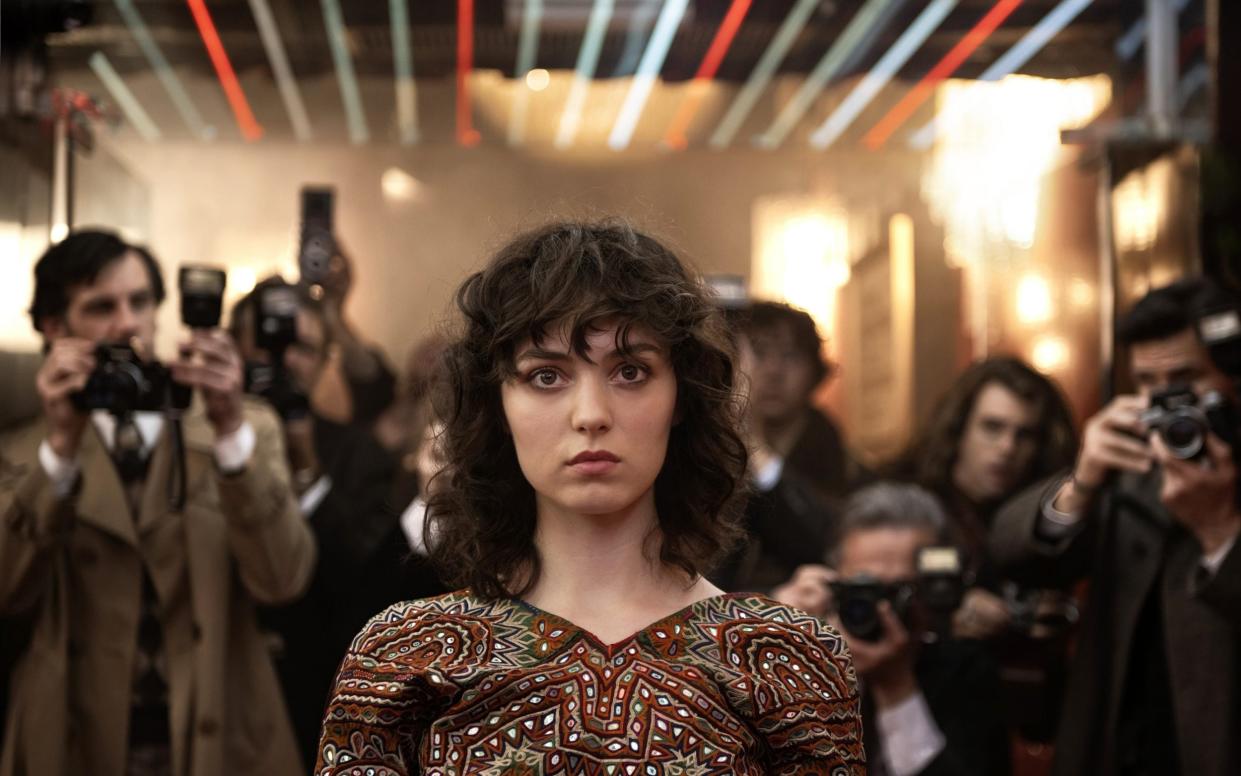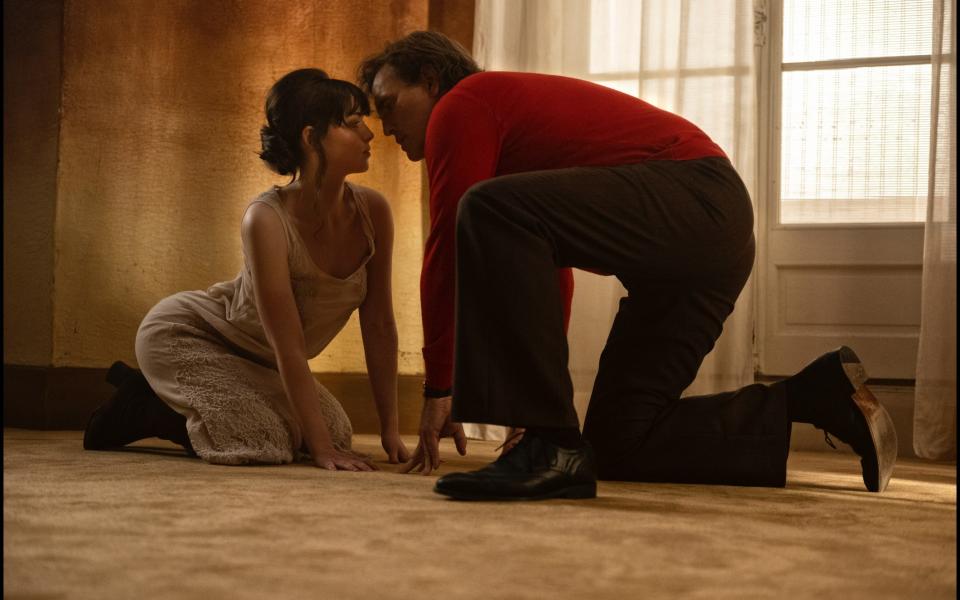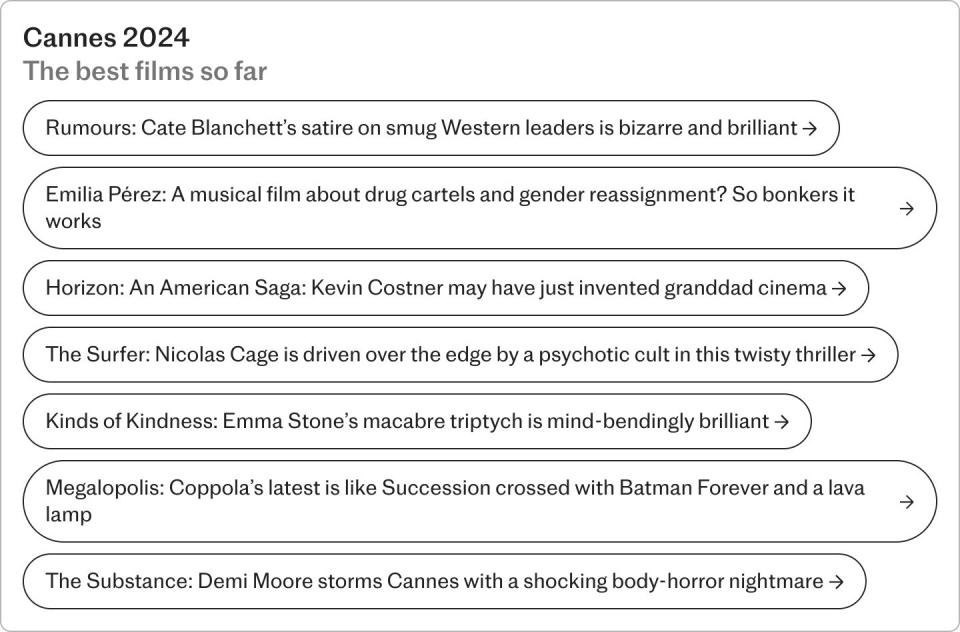Being Maria: Last Tango’s tormented heroine deserves better than this frustrating biopic

- Oops!Something went wrong.Please try again later.
- Oops!Something went wrong.Please try again later.
- Oops!Something went wrong.Please try again later.
- Oops!Something went wrong.Please try again later.
- Oops!Something went wrong.Please try again later.
- Oops!Something went wrong.Please try again later.
When Bernardo Bertolucci explained why he and Marlon Brando had sprung an unscripted rape scene on the 19-year-old actress Maria Schneider during the making of Last Tango in Paris, the Italian director said he had been looking for “a more realistic response”.
Jessica Palud’s stinging dramatisation of Schneider’s troubled life, which premiered last night at Cannes, is a film made in response to that response: the tears of humiliation and shock, obtained through deceit, which made Bertolucci’s film a sensation while wrenching the life of its hopeful young star horribly off course.
Spelling out the whys and wherefores of this violative act – inflicted by powerful men, on an unknown young woman, for the sake of their art – is the reason to make Being Maria. And the part of the film which does this is the reason to watch it too. Adapted from the memoir My Cousin Maria Schneider by the journalist Vanessa Schneider, Palud’s film is both rewarding and frustrating: a tight, morally scorching opening followed by a much flatter, simpler account of its aftermath that can’t help but play as an hour-long postscript.
“I felt a little raped,” was how Schneider herself described the filming of the scene – and while Palud and Laurette Polmanss’s script methodically lays out the conditions under which Bertolucci and Brando’s actions might have seemed justifiable to those on set, it leaves you in no doubt that – even though the rape itself was acted – the violation that took place was real.

Intensely played by the French-Romanian actress Anamaria Vartolomei, Maria begins as a wary yet optimistic figure: she can’t believe her luck to be working with a Hollywood legend 29 years her senior on her first major gig. Her father (Yvan Attal), the jobbing French character actor Daniel Gélin, reaffirms what a privilege this role is – while on set, Bertolucci (Guiseppe Maggio) boasts that his films don’t contain actors, but people, and Brando (Matt Dillon, a dead ringer for the star from certain angles) whisperingly enthuses about the potency of ‘real emotion’ on screen.
A warning bell sounds when, during an initially tender bathing scene, Brando unexpectedly pushes Maria under the water and holds her there. Then afterwards, as she sits in the bath still naked, he and Bertolucci loftily discuss the moment over her head, as if she’s nothing more than a warm-blooded prop. But these are geniuses at work, and no-one – least of all the girl they’ve deigned to elevate to their level – thinks to object. As such, when the time comes for the fateful scene, they get exactly what they want: a visual record of the death of a young woman’s innocence. But it’s Maria, not her character, who is left bereaved.
The long-term consequences are depressing, but also low on dramatic tension and life. Brando and Bertolucci scuttle off, leaving her to weather Last Tango’s scandals alone, while the scripts she’s sent become monotonously sexual, as other directors seek to cash in. She seeks solace in heroin, which makes her unreliable on set. A romance with a younger female film student (Céleste Brunnquell) brings a note of solace, but also feels like a contrivance to give the story shape. Perhaps that flaw is a grim built-in feature of Being Maria’s subject matter: Schneider herself was denied her second act.
Cert tbc, 108 mins. Screening at the Cannes Film Festival. A UK release has yet to be announced


